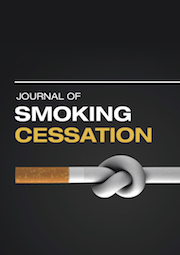Article contents
New terminology for the treatment of tobacco dependence: a proposal for debate
Published online by Cambridge University Press: 16 August 2013
Extract
Tobacco dependence is characterised as a chronic, relapsing disorder that typically requires multiple quit attempts before successful, long-term abstinence is achieved (Steinberg, Foulds, Richardson, Burke, & Shah, 2006). Best practice, evidence-based treatment includes multiple-session counselling and pharmacotherapy, or the combination of both (Fiore et al., 2008). The field has moved past the notion that tobacco dependence is simply a bad habit, a vice, or a moral deficiency that can be overcome by willpower or education alone (Mars & Ling, 2008). However, the language used in discussing treatment has not always been consistent with this evidence. Some words and phrases used lend themselves to varied meanings, and could lead to significant misunderstanding not only among professionals in the field, but also among the general public (O'Brien, 2010; Davis, 1992; Perkins, 1999; Hughes, 2013). In this paper, we discuss some commonly used, problematic terminology, and suggest more appropriate terms (Table 1).
- Type
- Articles
- Information
- Copyright
- Copyright © The Author(s), published by Cambridge University Press on behalf of Australian Academic Press Pty Ltd 2013
References
- 7
- Cited by


